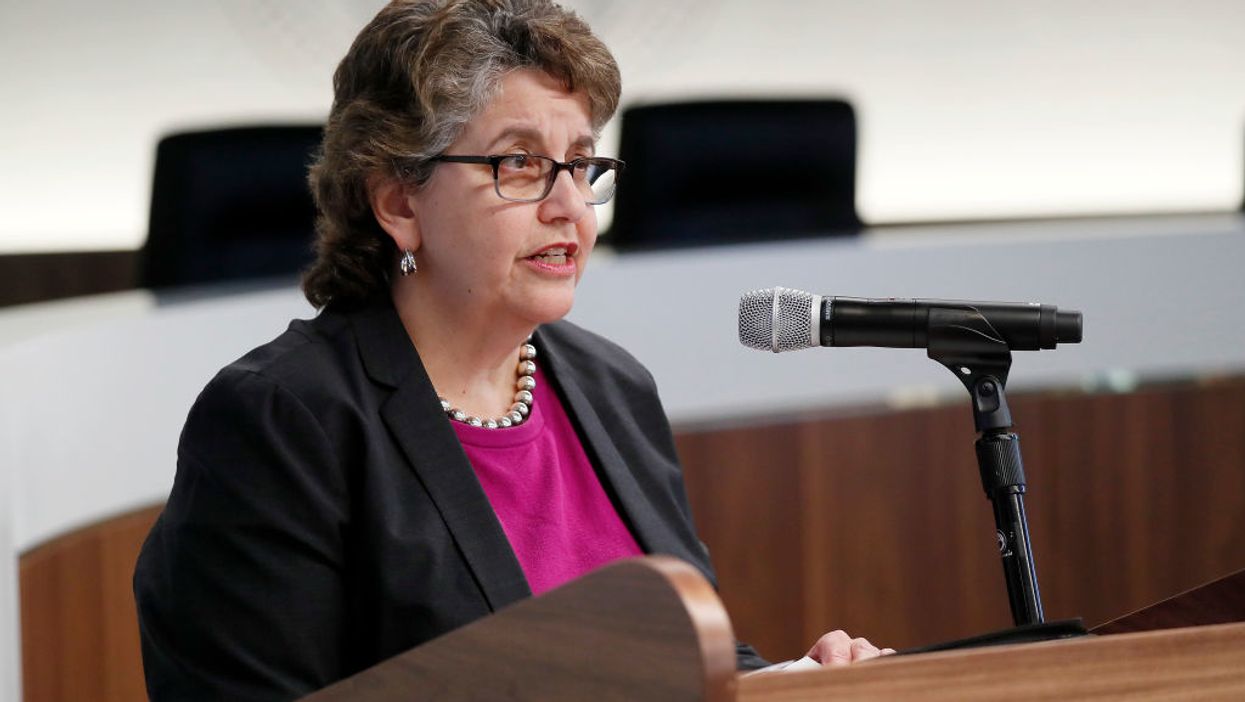In what is being hailed as a victory for campaign finance transparency, the Supreme Court has rejected an attempt to keep secret the name of a donor who gave $1.7 million to a Republican super PAC eight years ago.
The decision holds some potential to make it more difficult for so-called dark money groups to shield the identities of their biggest contributors in this campaign season and beyond. Increasing sunlight on the forces pouring so many millions into American politics is a main goal of democracy reform groups at a time when increased regulation is not a realistic hope.
The high court on Monday let stand an appeals court's ruling that the donor — a trust fund and its trustee identified only as "John Doe" in court filings — has no right to remain anonymous and may be publicly identified by the Federal Election Commission.
Ellen Weintraub, the most assertive regulator on the commission, says she plans to unmask John Doe as soon as the court's decision is processed by the D.C. Circuit Court of Appeals. She would be acting unilaterally at a time when the FEC has almost entirely ceased operating for lack of a quorum.
The donation was made in 2012, early in the rise of the "dark money" system decried by campaign finance reform advocates. Dark money groups are nonprofits regulated by the IRS, not the FEC, and therefore do not have to disclose their sources of revenue. They are similar to super PACs in that they may spend unlimited amounts on a campaign but are not directly affiliated with the candidate. Super PACs are regulated by the FEC and must disclose their donors.
It is not yet clear how much impact this case will have on increasing campaign finance transparency, because the Republican who funneled the money to the super PAC is going to be exposed only because of a connection to a case at the FEC.
That was a complaint by Citizens for Responsibility and Ethics in Washington, or CREW, maintaining the $1.7 million donation to the Now or Never PAC was illegal because it was listed as coming from someone other than the real donor — the so-far-unidentified trustee.
According to an agreement settling the complaint, on the same day as that donation, money was given by the same secretive donor to a group called the Government Integrity Project. That group in turn donated to the American Conservative Union, which then gave $1.7 million to the Now or Never PAC.
Now or Never PAC, which was terminated in 2018, was created in 2012 to support candidates who favored balancing the federal budget. It made millions of dollars in independent expenditures mosty in support of Republican congressional candidates and against Democratic candidates.
The FEC in Novembrer 2017 signed off on the settlement, which called for the groups to pay $350,000 in fines for the money funneling. Normally that would have triggered public release of all the case documents. But attorneys for the unnamed donor got a court order to redact the name while their attempt to keep it permanently secret moved through the courts. They argued release of the names violated privacy and federal election and public records laws. But the district court and the appeals court rejected all of those arguments.




















Trump & Hegseth gave Mark Kelly a huge 2028 gift